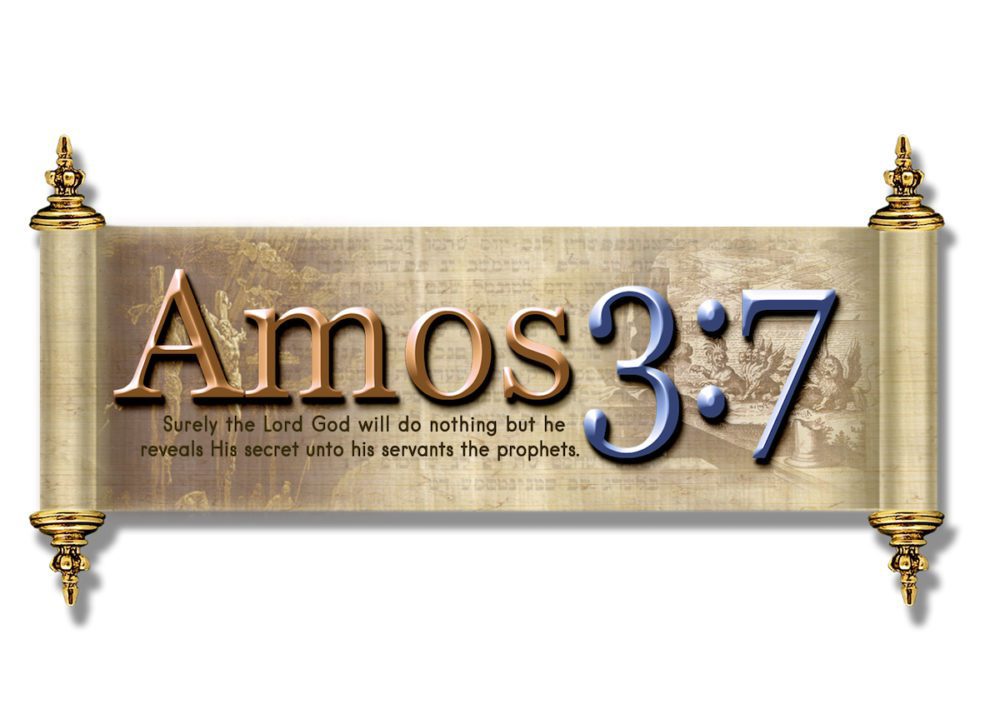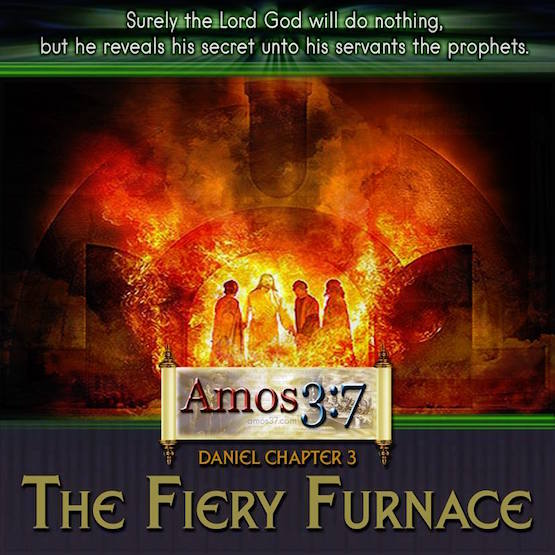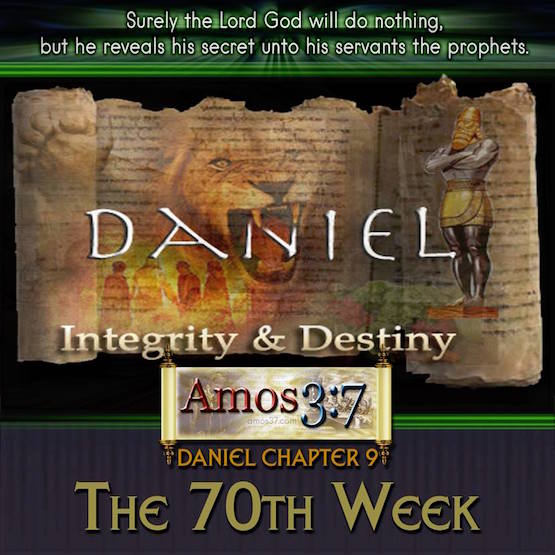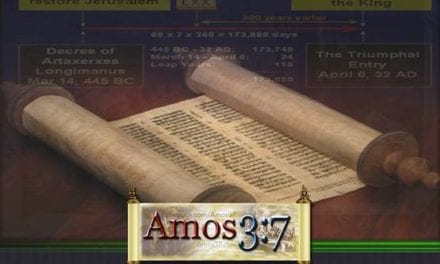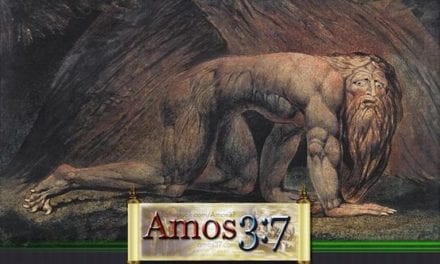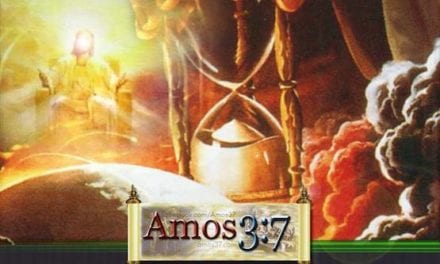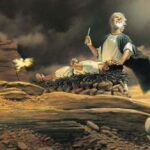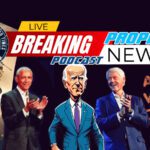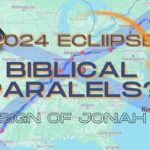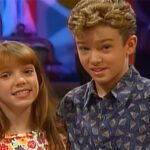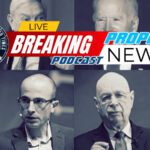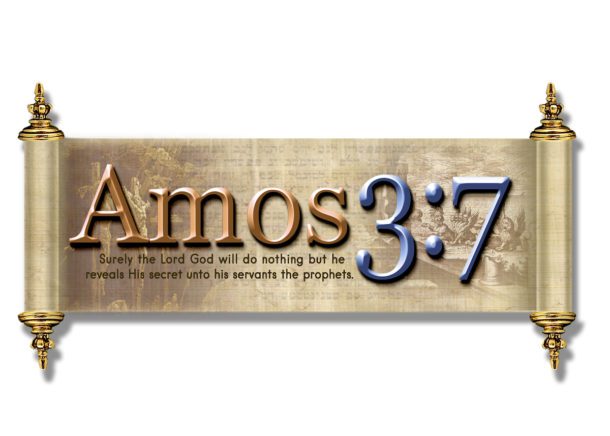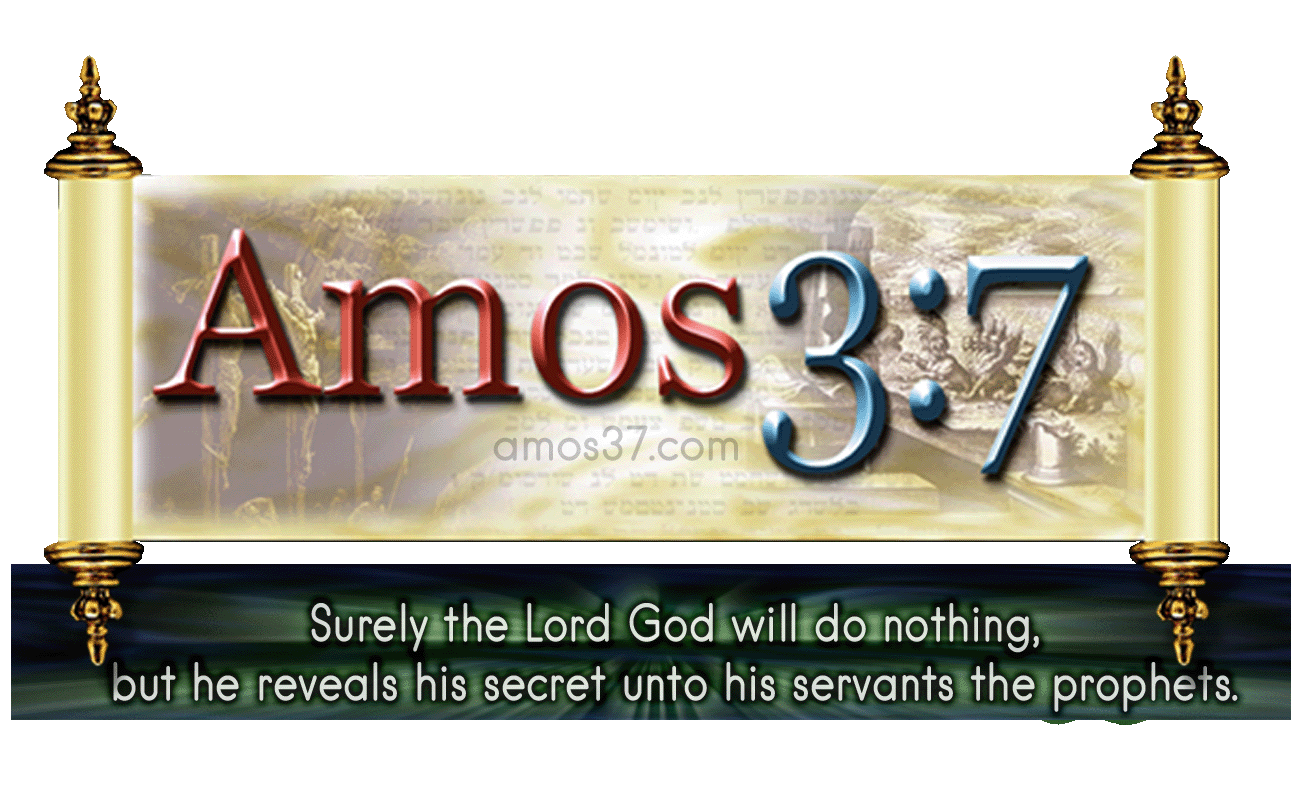THE BOOK OF DANIEL is quoted often in the New Testament Book of Revelation. In many ways, the two books need to be read and studied together. Daniel lived at an important time of ancient history and his story is critical to our understanding of what is happening today. His visions speak powerfully of the end times, and his writing continues to exalt the “Most High God.” The accuracy and reliability of his remarks concerning future events have caused many to question his authorship of this book. However, we have complete confidence that he not only wrote the book but that God used him powerfully to bring His message to His people about what is about to happen in our time. Daniel Ch. 3 The Fiery Furnace
Daniel & The Fiery Furnace
1 Nebuchadnezzar the king made an image of gold, whose height was threescore cubits, and the breadth thereof six cubits: he set it up in the plain of Dura, in the province of Babylon.
Daniel Chapter 3 Video Exposition
Bow or Burn Review
• Why Daniel?
– Gentile History
– Most Amazing Passage(s) in the Bible
• Deportation to Babylon Dan 1
• The Career of Nebuchadnezzar
– His Strange Dream Dan 2
• The Rival’s Revenge Dan 3
Chapter 3: A Symphony for Sycophants
1] Nebuchadnezzar the king made an image of gold, whose height was threescore cubits, and the breadth thereof six cubits: he set it up in the plain of Dura, in the province of Babylon.
All Gold: 6 x 60 cubits high. “Dura” = “enclosed by a wall”; 6 miles SE of Babylon.
Maybe 18-23 years later? Traditions and children had grown. 6 = 7 – 1 = number of man. 6th day of Genesis: man created; Goliath measured in 6’s; 1 Sam 17:4-7; 6 steps for Solomon’s throne; 6 + 1: Menorah. In our society, Man is deified = Humanism. Ultimate: Rev 13.
A Vote of Confidence
A revolt in 596 B.C. may have set the stage for the wide scale reaffirmation and swearing allegiance in support of Nebuchadnezzar [ from cuneiform tablets in the British Museum].
2] Then Nebuchadnezzar the king sent to gather together the princes, the governors, and the captains, the judges, the treasurers, the counsellors, the sheriffs, and all the rulers of the provinces, to come to the dedication of the image which Nebuchadnezzar the king had set up. Officials (Aramaic, Greek): princes: Arabian ‘ahashdarpan, Greek satrap; chief representative or administrator of king; governors, segan, perfect, military commanders; captains, peha, governor (civil); judges, adargazar, counsellor, arbitrator; treasurers, qedabar, treasurer, counsellors, detabar, lawyers; sheriffs, tiptay, magistrates, judge.
3] Then the princes, the governors, and captains, the judges, the treasurers, the counselors, the sheriffs, and all the rulers of the provinces, were gathered together unto the dedication of the image that Nebuchadnezzar the king had set up; and they stood before the image that Nebuchadnezzar had set up.
4] Then an herald cried aloud, To you it is commanded, O people, nations, and languages,
5] That at what time ye hear the sound of the cornet, flute, harp, sackbut, psaltery, dulcimer, and all kinds of musick, ye fall down and worship the golden image that Nebuchadnezzar the king hath set up:
6] And whoso falleth not down and worshippeth shall the same hour be cast into the midst of a burning fiery furnace. If you follow “heavy metal” music, this “hot” music group gives “Metallica” a whole new meaning! The Christian equivalent would be “Deliverance,” and that is, after all, what happens with Christ in the picture, as the three young men soon discover!
Execution Furnace: Examples in N. Iraq: brick furnaces the size of a city block; pitch, sulfur, bellows. CBS: Dr. Ron Charles (designed for Owens Corning Corporation) sees it as a two-story structure, 32 ft. high, 20 ft. inside the chamber. Backdraft killed seven? Cold spots? [Enforced state religion: Rev 13:4-15; 14:9-11; 19:20; 20:4; 2 Thess 2:4.]
7] Therefore at that time, when all the people heard the sound of the cornet, flute, harp, sackbut, psaltery, and all kinds of musick, all the people, the nations, and the languages, fell down and worshipped the golden image that Nebuchadnezzar the king had set up.
8] Wherefore at that time certain Chaldeans came near and accused the Jews.
9] They spake and said to the king Nebuchadnezzar, O king, live for ever.
10] Thou, O king, hast made a decree, that every man that shall hear the sound of the cornet, flute, harp, sackbut, psaltery, and dulcimer, and all kinds of musick, shall fall down and worship the golden image:
11] And whoso falleth not down and worshippeth, that he should be cast into the midst of a burning fiery furnace.
12] There are certain Jews whom thou hast set over the affairs of the province of Babylon, Shadrach, Meshach, and Abednego; these men, O king, have not regarded thee: they serve not thy gods, nor worship the golden image which thou hast set up.
13] Then Nebuchadnezzar in his rage and fury commanded to bring Shadrach, Meshach, and Abednego. Then they brought these men before the king. Bowing before an image expressly prohibited in the Torah: Ex 20:4,5; Lev 26:1; Deut 16:22.
• Shadrach, “illumined by the Sun God”
– Hananiah, “Beloved of the Lord”
• Meshach, “Who is like unto the Moon God”
– Mishael, “Who is God”
• Abed-nego, Servant of Nego (“Shining Fire”)
– Azariah, “The Lord is my help”
CBS Special: Five-sided clay prism found in Babylon, now on display at the Istanbul Museum: lists grouped by titles: Ha-nu-nu, Chief of the Royal Merchants, a variation of Hananiah, or Shadrach; Mushalemarduk: (less marduk) = Meshach. Ardi-nabu, Secretary to the Crown Prince; an alternative form of Abed-Nego.
14] Nebuchadnezzar spake and said unto them, Is it true, O Shadrach, Meshach, and Abednego, do not ye serve my gods, nor worship the golden image which I have set up?
15] Now if ye be ready that at what time ye hear the sound of the cornet, flute, harp, sackbut, psaltery, and dulcimer, and all kinds of musick, ye fall down and worship the image which I have made; well: but if ye worship not, ye shall be cast the same hour into the midst of a burning fiery furnace; and who is that God that shall deliver you out of my hands? Second chance? They must have been favored.
16] Shadrach, Meshach, and Abednego, answered and said to the king, O Nebuchadnezzar, we are not careful to answer thee in this matter.
17] If it be so, our God whom we serve is able to deliver us from the burning fiery furnace, and he will deliver us out of thine hand, O king.
18] But if not, be it known unto thee, O king, that we will not serve thy gods, nor worship the golden image which thou hast set up. Cf. Faithful “remnant”: Isa 1:9; Rom 11:5. Ps 2:5; Rev 7:14. “Though He slay me, yet will I trust in Him: but I will maintain mine own ways before Him.” Job 13:15 Also, Acts 4:19. “Our God is a consuming fire” Heb 12:29; Deut 4:24.
19] Then was Nebuchadnezzar full of fury, and the form of his visage was changed against Shadrach, Meshach, and Abednego: therefore he spake, and commanded that they should heat the furnace one seven times more than it was wont to be heated.
20] And he commanded the most mighty men that were in his army to bind Shadrach, Meshach, and Abednego, and to cast them into the burning fiery furnace.
Seven times?…
21] Then these men were bound in their coats, their hosen, and their hats, and their other garments, and were cast into the midst of the burning fiery furnace.
22] Therefore because the king’s commandment was urgent, and the furnace exceeding hot, the flame of the fire slew those men that took up Shadrach, Meshach, and Abednego.
23] And these three men, Shadrach, Meshach, and Abednego, fell down bound into the midst of the burning fiery furnace. Were the officers killed in backdraft?
24] Then Nebuchadnezzar the king was astonied, and rose up in haste, and spake, and said unto his counsellors, Did not we cast three men bound into the midst of the fire? They answered and said unto the king, True, O king.
25] He answered and said, Lo, I see four men loose, walking in the midst of the fire, and they have no hurt; and the form of the fourth is like the Son of God. Bar elahin, son of the gods (Aramaic); Elohim is always plural! “Angel” of v. 28. Theophany. Walking around loose!
26] Then Nebuchadnezzar came near to the mouth of the burning fiery furnace, and spake, and said, Shadrach, Meshach, and Abednego, ye servants of the most high God, come forth, and come hither. Then Shadrach, Meshach, and Abednego, came forth of the midst of the fire. El Elyon, possessor of Heaven and Earth. Nebuchadnezzar’s views will be amplified in Chapter 4!
27] And the princes, governors, and captains, and the king’s counsellors, being gathered together, saw these men, upon whose bodies the fire had no power, nor was an hair of their head singed, neither were their coats changed, nor the smell of fire had passed on them.
Many of God’s servants never know the fullness of spiritual liberty till they are cast into the midst of the furnace. Go into the furnace. Christ is in the furnace with you. Though the smell of fire had not passed on them, it must have left a glow on their countenances and a glory on their persons which we find nowhere else. Henceforth they are called “the three holy children.”
28] Then Nebuchadnezzar spake, and said, Blessed be the God of Shadrach, Meshach, and Abednego, who hath sent his angel, and delivered his servants that trusted in him, and have changed the king’s word, and yielded their bodies, that they might not serve nor worship any god, except their own God.
29] Therefore I make a decree, That every people, nation, and language, which speak any thing amiss against the God of Shadrach, Meshach, and Abednego, shall be cut in pieces, and their houses shall be made a dunghill: because there is no other God that can deliver after this sort. Whoops! The rivals’ plot had backfired! Nebuchadnezzar is a mover and a shaker.
30] Then the king promoted Shadrach, Meshach, and Abednego, in the province of Babylon.
It is often significant to notice what is missing in the Scripture. Sometimes the Holy Spirit “redacts” the text to highlight a deeper truth…
I have also spoken by the prophets, and I have multiplied visions, and used similitudes, by the ministry of the prophets. Hosea 12:10
Figures of Speech in The Bible
• Simile: Resemblance (Gen 25:25; Mt 7:24-27).
• Allegory: Comparison by representation (Gen 49:9; Gal 4:22, 24).
• Metaphor: Representation (Mt 26:26).
• Type: A figure or example of something future (Rom 5:14; Gen 22, 24).
• Analogy: resemblance in some particulars between things otherwise unlike.
• Hypocatastasis: an implied resemblance or representation (Mt 7:3-5; 15:13).
There are over 200 figures of speech in the Bible: they are cataloged in Cosmic Codes, Appendix A, giving Biblical examples of each.)
The Offering of Isaac:
A Lesson in Advanced Hermeneutics
The classic example of a “type” or “model” of God’s Plan. (For a detailed study of this profound passage, see our Expositional Commentary on Genesis.) Genesis 22:1-8
1] And it came to pass after these things, that God did tempt Abraham, and said
unto him, Abraham: and he said, Behold, here I am.
2] And he said, Take now thy son, thine only son Isaac, whom thou lovest, and
get thee into the land of Moriah; and offer him there for a burnt offering upon
one of the mountains which I will tell thee of.
“Only” son? “Love”: 1st Mention. Cf. John 3:16.3] And Abraham rose up early in the morning, and saddled his ass, and took two
of his young men with him, and Isaac his son, and clave the wood for the burnt
offering, and rose up, and went unto the place of which God had told him.
No test could have been more severe than the one God now imposed.
And no obedience could have been more perfect than Abraham’s.4] Then on the third day Abraham lifted up his eyes, and saw the place afar off.
Why a three-day journey? (~50 miles) Why there?5] And Abraham said unto his young men, Abide ye here with the ass; and I and
the lad will go yonder and worship, and come again to you.6] And Abraham took the wood of the burnt offering, and laid it upon Isaac his son;
and he took the fire in his hand, and a knife; and they went both of them together.
Isaac was not a child: possibly 30 years of age!… you will see why shortly.
“Both of them together” = both in agreement. An image of the Son who
said “Father … not my will, but yours be done” (Lk 22:42).7] And Isaac spake unto Abraham his father, and said, My father: and he said, Here
am I, my son. And he said, Behold the fire and the wood: but where is the lamb
for a burnt offering?8] And Abraham said, My son, God will provide himself a lamb for a burnt offering:
so they went both of them together.
Who?!! Himself (cf. v.14).9] And they came to the place which God had told him of; and Abraham built an
altar there, and laid the wood in order, and bound Isaac his son, and laid him on
the altar upon the wood.
10] And Abraham stretched forth his hand, and took the knife to slay his son.
A true worshiper of God holds nothing back from God but obediently
gives Him what He asks, trusting that He will provide.
11] And the angel of the LORD called unto him out of heaven, and said, Abraham,
Abraham: and he said, Here am I.
12] And he said, Lay not thine hand upon the lad, neither do thou any thing unto
him: for now I know that thou fearest God, seeing thou hast not withheld thy
son, thine only son from me.
“Young lads”: Armed soldiers; Isaac 32 years old?
He that spared not his own Son, but delivered him up for us all, how shall
he not with him also freely give us all things?
Romans 8:32Abraham did not withhold his son. Similarly Paul wrote that God “did not
spare (epheisato) His own Son, but gave [delivered] Him up for us all” (Rom
8:32). A form of the same Greek word is used of Abraham in the Septuagint:
“Thou hast not spared (epheiso) thy beloved son” (Gen 22:12).13] And Abraham lifted up his eyes, and looked, and behold behind him a ram caught
in a thicket by his horns: and Abraham went and took the ram, and offered him
up for a burnt offering in the stead of his son.
14] And Abraham called the name of that place Jehovahjireh: as it is said to this day,
In the mount of the LORD it shall be seen.Substitutionary ram (cf. Gen 3:22; Lev 9; Ex 29; Num 5; Gen 15). A name only relevant in a Prophetic perspective! Abraham knew he was acting out a prophetic ritual. Jesus should say: “Your father Abraham rejoiced to see my day: and he saw it, and was glad” (Jn 8:56).
By faith Abraham, when he was tried, offered up Isaac: and he that had received the promises offered up his only begotten son, Of whom it was said, That in Isaac shall thy seed be called: Accounting that God was able to raise him up, even from the dead; from whence also he received him in a figure. Hebrews 11:17-19
And I saw in the right hand of him that sat on the throne a book written within and on the backside, sealed with seven seals. And I saw a strong angel proclaiming with a loud voice, Who is worthy to open the book, and to loose the seals thereof?
And no man in heaven, nor in earth, neither under the earth, was able to open the book, neither to look thereon. And I wept much, because no man was found worthy to open and to read the book, neither to look thereon. And one of the elders saith unto me, Weep not: behold, the Lion of the tribe of Judah, the Root of David, hath prevailed to open the book, and to loose the seven seals thereof.
And I beheld, and, lo, in the midst of the throne and of the four beasts, and in the midst of the elders, stood the Lamb as it had been slain, having seven horns and seven eyes, which are the seven Spirits of God sent forth into all the earth. And he came and took the book out of the right hand of him that sat upon the throne. Revelation 5:1-7
15] And the angel of the LORD called unto Abraham out of heaven the second time,
16] And said, By myself have I sworn, saith the LORD, for because thou hast done this thing, and hast not withheld thy son, thine only son:
17] That in blessing I will bless thee, and in multiplying I will multiply thy seed as the stars of the heaven, and as the sand which is upon the sea shore; and thy seed shall possess the gate of his enemies; God again confirmed His covenant with Abraham (cf. 15:5, 18-21; 17:3-
8). His descendants would be numerous like the stars (cf. 15:5; 26:4), like the sand on the seashore (cf. 32:12), and “like the dust of the earth” (cf. 13:16; 28:14). God then added another element: Abraham’s descendants would be victorious over the cities of their Canaanite enemies. This was done by Joshua in the Conquest.
18] And in thy seed shall all the nations of the earth be blessed; because thou hast obeyed my voice.
Biblical Typology of The Trinity
• Abraham = The Father.
• Isaac = The Son, as an Offering:
– “only son” (1st mention: “love”);
– “dead” to Abraham 3 days (Heb 11:19).
Genesis 24: A Bride for Isaac:Abraham commissions Eleazer to gather a bride for Isaac. Eleazer qualifies her by a well; she agrees to marry the bridegroom; he gives her gifts…she joins her bridegroom at the well of Lahai-Roi.
• Abraham = The Father.
• Isaac = The Son.
• Eleazer = The Holy Spirit …sent to gather the Bride for the Son.
19] So Abraham returned unto his young men, and they rose up and went together to Beersheba; and Abraham dwelt at Beersheba.
Where’s Isaac?
Isaac is personally “edited out of the record” until he is united with his bride by the well of LaHai Roi…two chapters later. (The well of LaHai Roi: “the well of Living One [who] sees me” Cf. Gen 16:13-14.)
One Integrated Design
The New Testament
is in the Old Testament concealed;
The Old Testament
is in the New Testament revealed.
Marriage Models in The Bible
• Gentile Brides
Eve Adam
Rebekah Isaac
Asenath Joseph
Zipporah Moses
Rahab Salmon
Ruth Boaz
• All have no death recorded (who’s the 7th?)
Daniel 3 Revisited
A Remez? (A hint of something deeper)
Daniel 3 vs. Revelation 13
• Forced worship of Image Rev 13:1; Mt 24
– Nebuchadnezzar = Antichrist?
– Cf. Babel, Nimrod
– One Enforced religion Rev 17; 2 Thess 2:4
• Mark of the Beast Rev 13:18
– Bar codes? Microchips?
– Vs. “seal” of the Holy Spirit Cf. Ezek 9:4
• Fiery furnace = Tribulation? Isa 43:1,2; Dan 9.
– Men destroyed by flames: 2 Thess 2:8; Rev 20:10; 19:20
• Three youths of Israel: 144,000? Rev 7; 15:2
Fire (as a Biblical idiom)
• God’s Presence Ex 3:1-4
• God’s Pathway Ex 13:21
• God’s Precepts Ex 19:16-18 (cf 20:1-17)
• God’s Punishment Gen 19:23-24; Lev 10:2
• God’s Power 1 Kgs 18:24
• God’s Protection Dan 3:25
• God’s Prophecy 2 Thess 1:6-10; 2 Pet 3:10; Lk 17:29,30 The Missing Element: Where’s Daniel? Why wasn’t Daniel in the furnace?
• Daniel yielded to the king’s challenge? Not likely.
• Daniel was exempted from accusation by his enemies? Not likely.
• Daniel had been removed from the situation (on an errand for the king?) Daniel’s absence may have been viewed as his rival’s opportunity… Absent on affair of state? Istanbul prism: lists 3; but no mention of Daniel!
The Church is not mentioned after Rev 4:1! One Integrated Design: the New Testament is in the Old Testament concealed; the Old Testament is in the New Testament revealed.
Next Session: A lesson on pride. Chapter 4 is written by Nebuchadnezzar himself…And why I believe we’ll see him in heaven!
Purchase entire series with notes or audio from Khouse
Connect with Khouse
Download Pdf Notes For Daniel CommentaryChuck Missler Bio
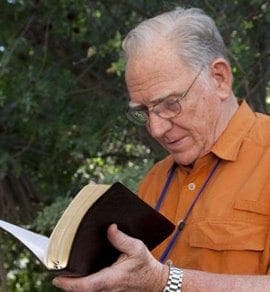 Recruited into senior management at the Ford Motor Company in Dearborn, Michigan, Chuck established the first international computer network in 1966. He left Ford to start his own company, a computer network firm that was subsequently acquired by Automatic Data Processing (listed on the New York Stock Exchange) to become its Network Services Division.
Recruited into senior management at the Ford Motor Company in Dearborn, Michigan, Chuck established the first international computer network in 1966. He left Ford to start his own company, a computer network firm that was subsequently acquired by Automatic Data Processing (listed on the New York Stock Exchange) to become its Network Services Division.
Returning to California, Chuck found himself consulting, organizing corporate development deals, serving on the board of directors at several firms, and specializing in the rescuing of financially troubled technology companies. He brought several companies out of Chapter 11 and into profitable operation. Chuck thrived on this type of work.
As Chuck notes, his day of reckoning came several years ago when — as the result of a merger — he found himself the chairman and a major shareholder of a small, publicly owned development company known as Phoenix Group International. The firm established an $8 billion joint venture with the Soviet Union to supply personal computers to their 143,000 schools. Due to several unforeseen circumstances, the venture failed. The Misslers lost everything, including their home, automobiles and insurance.
It was during this difficult time that Chuck turned to God and the Bible. As a child he developed an intense interest in the Bible; studying it became a favorite pastime. In the 1970s, while still in the corporate world, Chuck began leading weekly Bible studies at the 30,000-member Calvary Chapel Costa Mesa, in California. He and Nancy established Koinonia House in 1973.
